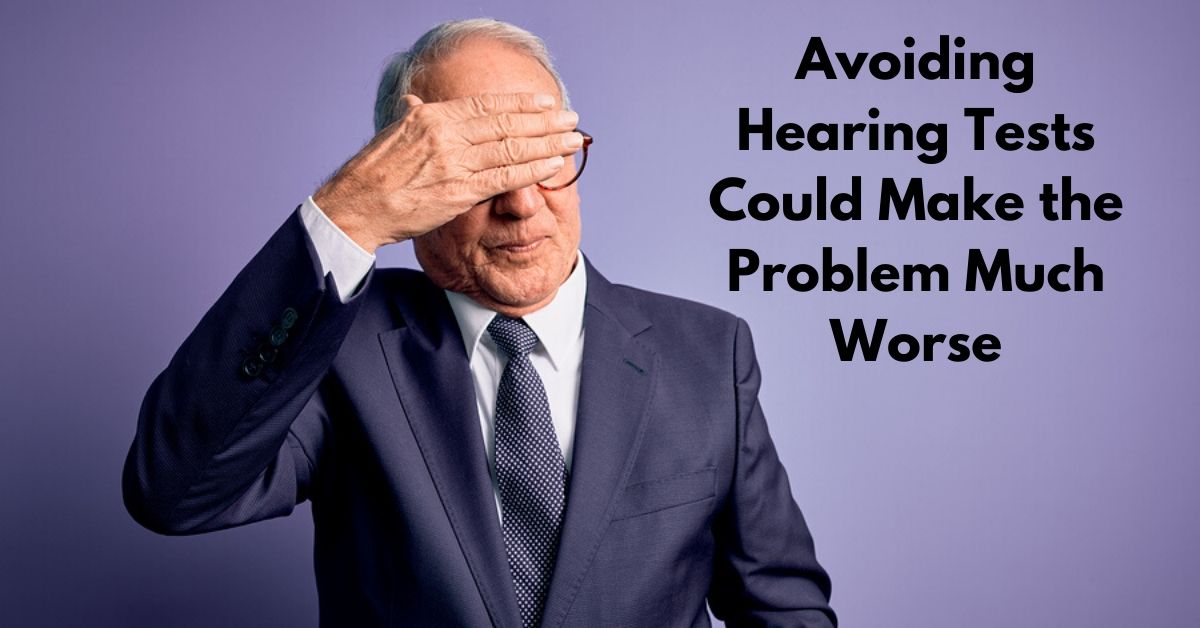- Common Hearing Aid Problems & How to Fix Them - June 14, 2021
- Why People Avoid Treating Hearing Loss — and Why You Should Schedule a Hearing Test! - May 21, 2021
- Common Hearing Aid Problems & How to Fix Them - May 14, 2021
Hearing loss is among the most common afflictions in the US, affecting 1 out of 8 persons age 12 or older in both ears. It’s no wonder in our modern landscape. Planes, trains and automobiles; the constant companionship of our phones sounding into our earbuds; music festivals; the list goes on and on. Noise levels have risen sharply since the Industrial Revolution, and it continues to take a toll on our hearing. Noise-induced hearing loss (NIHL) begins to occur with prolonged exposure to sounds as low as 85 decibels. For context, that’s about the volume of a gas-powered lawn mower or leaf blower, or sitting in traffic with the windows down.
We can’t avoid these sounds all the time, and we don’t always have earplugs in when they come along. What we can do is get hearing tests at regular intervals. If hearing loss is discovered, we can take steps to prevent further damage to our ears going forward, and if we need treatment like hearing aids, it’s best to start with them sooner than later. 85% of people who get hearing aids are satisfied with them, and for good reason. They improve our relationships with those around us and keep us active for longer. They reduce the fatigue of straining to listen with hearing loss. If we are in the workforce, they improve our earnings. And there are real negative consequences to untreated hearing loss.
Decreased Earnings at Work
Statistically, those with hearing aids earn as much as $30,000 more annually than those with untreated hearing loss. Like most problems with hearing loss, this loss of earnings happens slowly over time, with annual salary increases failing to keep up with those of our peers. Those with mild hearing loss who choose to treat it reduce their loss of income by 95 to 100%. For those with moderate to severe hearing loss, hearing aids have a 65 to 77% benefit for earnings.
Problems in Relationships and Social Isolation
It doesn’t happen all at once. Much like the onset of NIHL, the problems associated with hearing loss accrue imperceptibly over a long time. Maybe you’re asking your friends and loved ones to repeat themselves more often. They get annoyed and you have a fight. Maybe, instead of asking them to repeat themselves, you just sit out the conversation, pretending to hear. Eventually they realize you’re not listening to them. Relationships require mutual consideration, and of course you can’t think about what a person just said if you didn’t even hear it.
Over time, social difficulties make a person withdraw from social activity. If you can’t make out speech from background noise, you’re not going to enjoy a night out. If you can’t keep up with the conversation at your weekly gathering, you’re not going to enjoy going. When you start to withdraw from these activities, you isolate yourself. It will happen slowly, but it will leave you more alone in the end.
Cognitive Difficulties
Untreated hearing loss can lead to earlier cognitive decline and dementia. This is due in part to social isolation and decreased activities, which reduce the brain’s intake of information. It’s not just learning new facts, but every word you hear another person say gives your brain something to do and keeps you sharp.
It’s actually been discovered that the parts of the brain that interpret incoming sound can atrophy, as they receive less information. People who have left their hearing loss untreated for a longer time, when finally fitted with hearing aids, have a harder time understanding speech even though they can hear it perfectly. The old adage “use it or lose it” turns out to apply very well to our ability to listen. The good news is that hearing aids can prevent this atrophy with a success rate comparable to normal hearing.
Loss of Balance and Physical Injury
A study published in the Journal of Preventive Medicine in 2018 found that hearing loss does in fact diminish our sense of balance. Though we maintain balance thanks to an organ called the “labyrinth” in our inner ear, which is not related to our ability to hear, we still use thousands of environmental cues every moment to augment that information.
Hearing loss is like death by a thousand cuts. We might be inclined to deal with the little problems that our reduced ability to hear can cause, but they start to add up. The best way to avoid the pitfalls above and continue to live our best lives is to get a hearing test at regular intervals.

